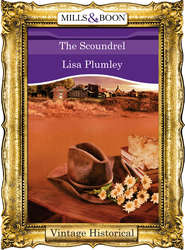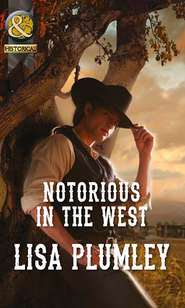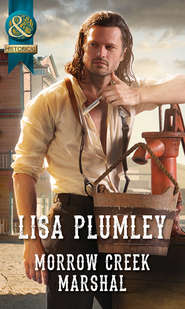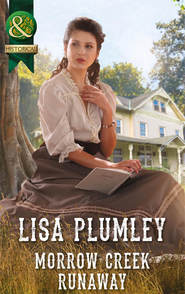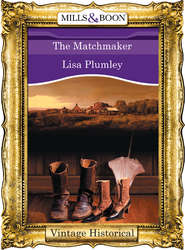По всем вопросам обращайтесь на: info@litportal.ru
(©) 2003-2025.
✖
Mail-Order Groom
Настройки чтения
Размер шрифта
Высота строк
Поля
“I feel quite pale.” Savannah fanned her face. Making every effort to suppress her natural vigor, she swanned into the chair. “Yes, that’s much better. Thank you so much, Doctor.”
“You’re welcome. I had no idea you were this delicate.”
He sounded thrilled by her fragility … exactly as she’d hoped he would. Savannah hated to playact this way, but she was in a right pickle. Beggars couldn’t be choosers. She had to manage with the skills she possessed … such as they were.
“Well …” Feebly Savannah fluttered her fingers. “I guess I am. And to have my moral fiber questioned in such terms … I suppose it simply took the last of my strength to withstand it.”
“Oh I do apologize.” Dr. Finney took her limp hand in his. “Truly, I didn’t mean to impugn your honor. I think it would be fine for you to care for this wounded gentleman—with Mr. Hawthorne’s supervision and my expert oversight, of course.”
“Of course! I couldn’t possibly manage alone.”
Behind the doctor, Mose stifled a guffaw. Perhaps she was overplaying her role, Savannah realized. But it was working.
“Shall I stay a bit longer, until you’re feeling restored?” Dr. Finney consulted his small, leather-bound journal. “Mrs. Marshall is expecting the arrival of a new baby today, but I—”
“Oh, no! I’ll be fine. Please go help Mrs. Marshall.”
The doctor peered at her. “Are you absolutely certain?”
“She’s certain,” Mose said. Loudly and indisputably.
It took a few more moments’ performance, but eventually Dr. Finney agreed. Leaving her with medical instructions, a tincture for neuralgia and a fatherly admonishment not to “strain” herself, the doctor took himself back to Morrow Creek.
The moment the door shut, Mose turned to her, laughing. “Bravo. Your best performance yet. And the most shameless.”
“The most expedient, you mean.” Not the least discomfited by her own audacity, Savannah bustled to her patient’s bedside. “Nothing convinces a man of a woman’s fine character more than her apparent weakness.
Why men expect a woman to be capable of hauling firewood, handling thirty-pound cast-iron pots, carrying babies, and hoeing knee-high weeds—all while appearing frail and helpless—is beyond me. Honestly. You’re all contrarians.”
“Maybe.” Her longtime friend gave her a searching look—one that had nothing to do with her theories on femininity. “But at least we men take life straight out, the way it comes to us. We don’t uproot ourselves, learn a new trade, finagle a wedding—”
“Stop it. We’ve already discussed this.” Savannah knew what Mose was suggesting—that she was being foolish to force her new life into fruition. Although Mose had been loyal enough to come out west with her, he’d always been skeptical about her plan.
On the other hand, Mose hadn’t been the one whose sordid personal story had been splashed across every tabloid newspaper in the States and beyond. Mose hadn’t been the one who’d turned to Warren Scarne for help and comfort … only to wind up unemployed and heartbroken. Savannah had been. She’d vowed to never land herself in such a pitiable position ever again.
“Admit it. You enjoyed your show for Dr. Finney just now.” Mose followed her, his expression concerned. “You haven’t seemed so chirpy in months. Are you sure you’re ready to leave your old life behind you? The stage, the lights, the applause—”
“Shh!” Worried that her patient might overhear their conversation, Savannah aimed a cautious glance at the man. Then she turned to Mose. “Of course I’m ready,” she assured him. She picked up a cloth from the basin, wrung it out, then dabbed it across her patient’s forehead, being careful to avoid his new bandages. She nodded at him. “He’s the proof of it, isn’t he?”
“He was shot in the back and left for dead.”
Well, that was a troubling detail. Shootings weren’t common in Morrow Creek. It had been all they could do to prevent Dr. Finney from calling for Sheriff Caffey and rounding up a posse. Mose—knowing that the last thing Savannah wanted was a lawman hanging about—had claimed he’d accidentally wounded the man when he’d spotted him in the trees … and that had been that. For now.
All Savannah could do now was hope that the danger was past—for all of them—and carry on with her plans as they were.
“Shot in the back,” Mose reiterated. “And left for dead.”
“I heard you the first time.” Considering that problem, Savannah gently cleansed the man’s sturdy chest and shoulders. She dipped her cloth in the basin again, turning the water pink with blood. She set back to work, washing near the bandages that crisscrossed the man’s midsection. Dr. Finney had stitched up her tardy fiancé, but he still bore a gunshot wound, a couple of broken ribs, several nascent bruises and a lump on his head.
“He’s a city man—a telegraph operator from Baltimore,” she reminded Mose. “A pair of thieves probably followed him from the train station and robbed him. Likely he didn’t know better—”
“He never arrived at the station, remember?”
“He might have taken another train. An earlier train.” Disconcerted, Savannah eyed her patient. She so longed for him to be the answer to her dreams—the key to her future. She didn’t want to admit the possibility that she might be wrong about him. “He might have arrived sometime when I wasn’t at the depot.”
“You’ve been at the depot every day. And he’s armored up like a common ruffian, too.” In demonstration, Mose pointed to the bedside table. On it lay the fearsome pistol they’d found on one side of the man’s belt. And the gun they’d salvaged from the other side of his belt. And the knife they’d slipped from his boot. “What do you make of that miniature armory of his?”
“Like I said, he was a simple city man. He was probably worried about coming out west and armed himself for protection. You know how the penny papers like to exaggerate the dangers of life outside the States. It’s a wonder anyone emigrates at all.”
“Humph.” Mose crossed his arms. “He looks like he could handle himself, even without all that firepower.”
Speculatively Savannah bit her lip. Her fiancé did appear more robust than she’d expected. Even in his current condition, his torso and arms were corded over with muscle. His trouser-covered legs appeared powerful, too, right down to his big bare toes peeping out from his pants hems. Both his hands bore the scars of rough living, but they also looked elegant. She could easily imagine his fingers working the sensitive telegraphy equipment that had brought them together over the wires.
“Well, you can’t reckon much by appearances. He probably has a very gentle heart, just like he told me in his letters.” Savannah ignored Mose’s skeptical snort. “And I’m the last person who would judge someone by what they look like—or—by what they might have done in the past. He and I are here to make a new beginning for ourselves. Together. And that’s that.”
“So if he’s an armed and dangerous outlaw on the run, you’re fine with marrying him? You’re hunky-dory with that?”
At Mose’s incredulous tone, Savannah smiled. She gave her friend a pat. “Of course I’m not. I have thought about this.”
“Good.” Mose appeared relieved. “I thought you had, but—”
“If he were an outlaw, he’d hardly have a respectable name to lend me, now would he?” With all reasonableness, Savannah skipped straight to the heart of the matter. She didn’t have to pussyfoot around with Mose. “You know I can’t go on much longer with my own name. What happened back in Missouri proved that.”
She’d first attempted to start over in Ledgerville. It hadn’t worked out, to say the least. But the lessons she’d learned in Missouri had made Savannah much savvier about her next attempt to forge a new life. She longed to live in town, in homey Morrow Creek just down the mountainside, but she didn’t dare approach the people there until everything was arranged just so. Until she was properly wed and respectably behaved.
Biting her lip, Savannah glanced at the Guide to Correct Etiquette and Proper Behavior handbook beside her telegraph. She’d studied it until the pages were nearly worn through. Now she could only hope her improvised education proved sufficient.
“Besides,” she said, “all I want is a home. A real home. Is that so awful? For a woman to want to build a cozy home life?”
“No, but … I still don’t like this.” Mose shook his head, his forehead creased with concern. “We should have gone on to San Francisco. We should have found places with a theater company. We should have started over with something we know.”
“You know why I don’t want to do that, Mose.”
He fell silent. Then said, “I know, but there are other ways—”
“You’re free to go if you want to.” Gently Savannah squeezed his arm. “I wouldn’t like it, but I would understand.”
“No.” Her friend’s frown deepened. “Not while he’s here.”
“I already told you, you don’t have to protect me.” At Mose’s dubious look, she smiled. “It’s all well and good that you told Dr. Finney you’d stay here, and I do appreciate your help. But I’m fully prepared to handle this myself.”
To prove it, Savannah put away her cloth. Then, with careful but businesslike gestures, she set to work making her patient feel more comfortable. She pulled out the heavy quilted flannel she’d put on to protect the mattress, then straightened the bedding. As she did, she couldn’t help studying her fiancé.
Not only was he bigger and stronger than she’d expected, but he was also much better looking. His face, topped by a tousled pile of dark hair, was downright handsome. He didn’t show much evidence of eating too many tinned beans, either. Maybe he’d wanted to seem humble in his letters? He’d been too poor, he’d said, to afford to send a photograph, the way she had.
Savannah hadn’t minded parting with one of her stage photographs—one of the final mementos of her previous life.
“He looks awfully uncomfortable.” Decisively she caught hold of his leg. Using his trousers as a makeshift handle, she moved his leg sideways a few inches. She reached for the other leg, just above his ankle, then moved it, too. “That’s better.”






